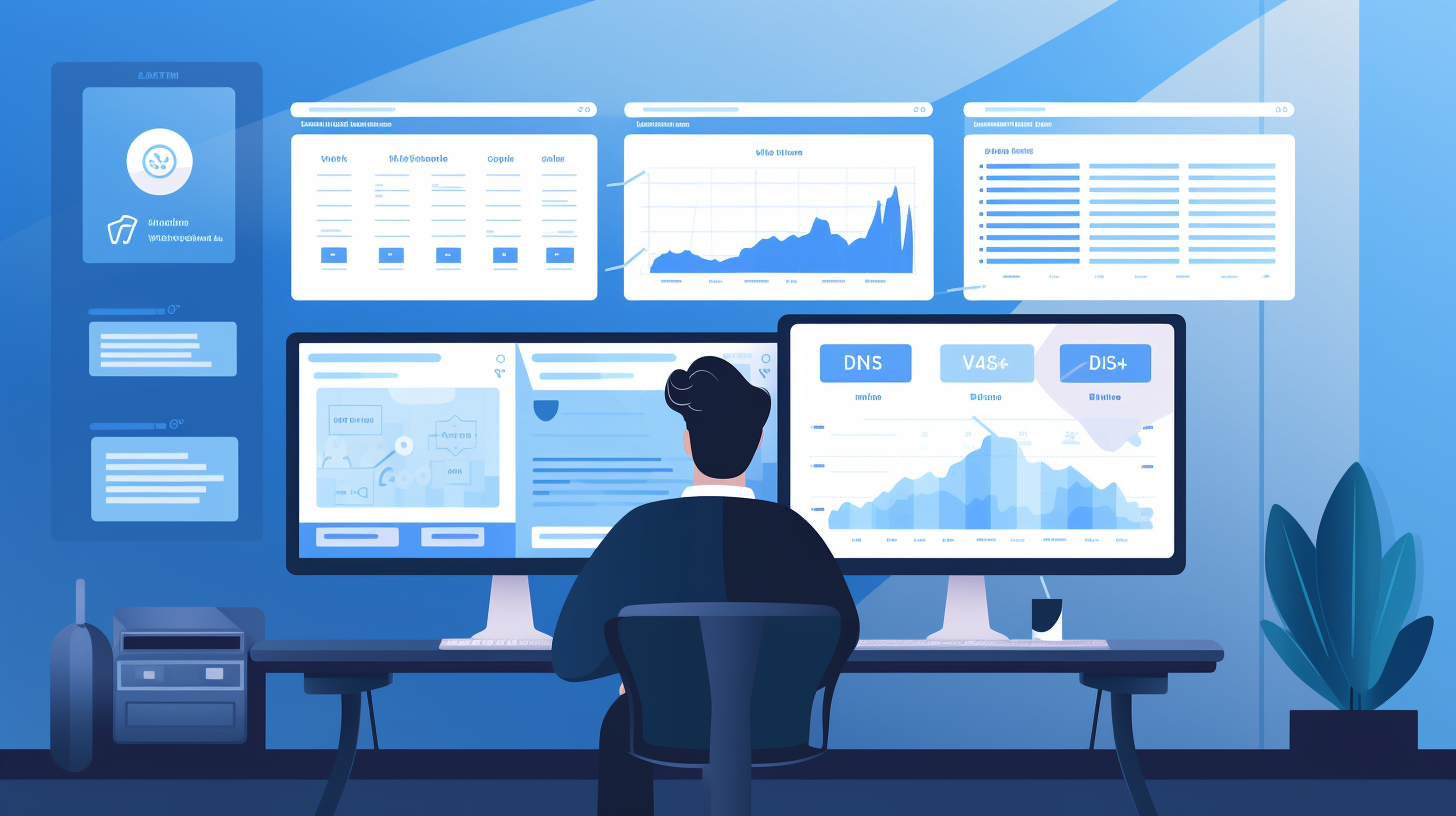Welcome to the world of website speed optimization! In today’s digitally-driven era, having a fast website is not just a luxury but a necessity. As an IT manager, you play a crucial role in ensuring that your website performs optimally to meet the expectations of your users and achieve your business goals. In this article, we will dive into the world of WordPress optimization and explore how you can master the art of website speed.
Website speed is not just about how quickly your website loads; it goes much deeper than that. It has a direct impact on user experience, bounce rates, conversions, and even your website’s overall reputation. In a nutshell, a slow website can drive away potential customers, impacting your bottom line. On the other hand, a fast and efficient website can enhance user satisfaction and boost conversions.
In this article, we will cover the importance of website speed, analyze website speed statistics, discuss quick wins for WordPress optimization, and explore the effects of speed on user perception. So, buckle up and get ready to supercharge your website’s performance!
Let’s start by exploring the importance of website speed.
Importance of Website Speed
In today’s fast-paced digital world, where attention spans are shorter than ever, website speed plays a crucial role in determining the success of your online presence. Users have become accustomed to instant gratification and expect websites to load quickly. As an IT manager, it’s vital to understand the importance of website speed and its impact on various aspects of your business.
User Expectations on Loading Time
- The average page speed of a website is 3.21 seconds[1].
- 86% of pages from B2C sites load in 5 seconds or less[1].
- 64% of smartphone users expect a web page to load in four seconds or less[1].
As you can see, users have high expectations when it comes to website loading times. If your site takes too long to load, you risk losing potential customers and damaging your brand’s reputation.
Correlation Between Page Load Time & Bounce Rate
- Probability of bounce increases 32% as page load time increases from 1 second to 3 seconds[1].
It’s a fact that users are impatient. If your website takes more than a few seconds to load, they will likely hit the back button and find an alternative. A high bounce rate can negatively impact your search engine rankings and result in missed opportunities.
Impact of Speed on Conversions
- Conversion rates can increase by 8% with a 0.1 second improvement in website speed[1].
- More than 45% of users won’t buy from an eCommerce website that loads slower than expected[1].
Website speed directly affects your conversion rates and revenue. Every additional second of loading time can significantly impact your bottom line. By optimizing your website for speed, you can provide a better user experience, increase customer satisfaction, and boost your conversion rates.
Pro Tip: Check out 10 Proven Tips for Supercharging Your WordPress Website’s Performance to learn more about optimizing your website speed for better user experience and increased conversions.
By prioritizing your website’s speed, you can gain a competitive edge in the digital landscape. A faster website not only improves user experience but also enhances your brand’s credibility and trustworthiness. Users are more likely to engage with fast-loading websites, resulting in higher click-through rates, longer time spent on site, and increased customer satisfaction.
To summarize, here are some key takeaways regarding the importance of website speed:
- The average page speed of a website is 3.21 seconds[1].
- 86% of pages from B2C sites load in 5 seconds or less[1].
- Probability of bounce increases 32% as page load time increases from 1 second to 3 seconds[1].
- 64% of smartphone users expect a web page to load in four seconds or less[1].
- Conversion rates can increase by 8% with a 0.1 second improvement in website speed[1].
- More than 45% of users won’t buy from an eCommerce website that loads slower than expected[1].
By understanding these statistics and their implications, you can prioritize website speed optimization and create a seamless user experience that keeps visitors engaged and improves your bottom line.
Analyzing Website Speed Statistics
In today’s fast-paced digital world, website speed plays a crucial role in shaping user experience and driving business success. With the increasing reliance on the internet for information, entertainment, and shopping, users have grown accustomed to fast-loading websites that provide instant gratification. As an IT manager, it’s essential to understand and analyze website speed statistics to ensure your WordPress website is optimized for speed and performance.
Average Web Page Load Time
When it comes to website speed, every second counts. According to recent studies, the average web page load time is 2.5 seconds on desktop devices and a whopping 8.6 seconds on mobile devices. This significant difference in load times can be attributed to various factors such as slower mobile internet connections and less powerful mobile devices.
Average Mobile Web Page Load Time
Mobile web page load time is a critical metric to consider, considering the growing number of users accessing the internet via smartphones and tablets. Shockingly, the average mobile web page takes a staggering 22 seconds to load! This delay can result in frustrated users bouncing off your website and seeking information elsewhere. Optimizing your WordPress website for mobile speed is paramount to keeping users engaged and satisfied.
Speed Stats for Different Industries
Different industries have different speed requirements, depending on the nature of their websites and user expectations. Let’s take travel websites, for example. On average, travel websites take around 6.7 seconds to load, which is significantly higher than the overall website speed benchmark. This extended load time can affect user engagement and potentially lead to lost business opportunities. Conducting competitor research and benchmarking your website speed against industry standards can help you stay ahead of the competition and meet customer expectations.
To optimize your WordPress website’s speed, it’s crucial to analyze these statistics and implement effective speed optimization techniques. By doing so, you can enhance user experience, reduce bounce rates, and increase the chances of conversions.
Quick Wins for WordPress Optimization
When it comes to optimizing your WordPress website for speed, there are several quick wins that can make a significant impact. Improving the speed of your website not only enhances user experience but also boosts your search engine rankings. In this section, we will explore some actionable tips to optimize the speed of your WordPress site and achieve better performance.
Improving Speed on Desktop
- Optimize Images: Large images can slow down your website significantly. Ensure that you optimize and compress your images without compromising on quality. Consider using plugins like Smush or EWWW Image Optimizer to automatically compress images.
- Caching Plugin: Utilize a caching plugin like W3 Total Cache or WP Super Cache to improve the loading speed of your website. Caching plugins store static versions of your web pages, reducing the server processing time required to generate a page for each visitor.
- Minify CSS and JavaScript: Reduce the file size of your CSS and JavaScript files by removing unnecessary spaces, comments, and formatting. This can be achieved by using plugins like Autoptimize or Fast Velocity Minify.
- Enable GZIP Compression: Use GZIP compression to compress your website’s files before sending them to the visitor’s browser. This significantly reduces the file size, resulting in faster page load times.
- Optimize Database: Regularly optimize your WordPress database to remove unnecessary data, such as post revisions, spam comments, and transients. Plugins like WP-Optimize or WP-Sweep can help you with this task.
Improving Speed on Mobile
- Responsive Design: Ensure that your website is mobile-friendly and has a responsive design. This allows your site to adapt to different screen sizes and improves the overall user experience on mobile devices.
- Mobile-Friendly Plugins: Be cautious while selecting plugins for your WordPress site, as some plugins may negatively impact the mobile load time. Choose plugins that are optimized for mobile performance or have mobile-specific versions available.
- Lazy Loading: Implement lazy loading, a technique that defers the loading of non-critical resources, such as images or videos, until they are about to be displayed. This can significantly improve the initial load time on mobile devices.
- Reduce Redirects: Minimize the number of redirects on your website, as each redirect adds extra time to the page loading process. Review your site’s redirections and eliminate any unnecessary or excessive redirects.
Implementing these quick wins for WordPress optimization can help improve the speed and performance of your website. Remember, every second counts when it comes to user experience and search engine rankings. By making these simple optimizations, you can enhance the overall browsing experience for your visitors and increase the likelihood of conversions on your site.
“Optimizing your WordPress website for speed doesn’t have to be overwhelming. By implementing these quick wins, you can achieve noticeable improvements in performance without much hassle.”
Effects of Speed on User Perception
When it comes to website speed, it’s not just about technical optimization and improved loading times. The speed at which your website loads can have a significant impact on how users perceive your brand and whether they choose to engage with your website. Let’s dive into how website speed affects user perception and how it can impact your conversion rates.
Opinion Formation and Website Speed
Did you know that it takes about 50 milliseconds (0.05 seconds) for users to form an opinion about your website? Yes, that’s right – users make snap judgments about your website based on its loading speed alone. Here’s what you need to know about opinion formation and website speed:
- First impressions matter: When a user visits your website, they want to see content quickly. A slow-loading website gives the impression of an unprofessional and unreliable brand. Users are likely to associate slow loading times with a lack of trustworthiness and may even question the quality of your products or services.
- User patience is limited: In today’s fast-paced digital world, users have short attention spans. If your website takes too long to load, users will likely abandon it and move on to a competitor’s site. This can result in lost leads, reduced engagement, and ultimately, lower conversions.
- Build trust and credibility: On the flip side, a fast-loading website can help build trust and credibility with your audience. When users experience a smooth and seamless browsing experience, they are more likely to trust your brand and view you as reliable and professional.
Effect on Conversion Rates
Now that we understand how website speed influences user opinion, let’s explore how it affects your conversion rates. Here are a couple of important considerations:
- Impact of loading times: Studies have shown that website conversion rates drop by an average of 4.42% for each additional second of load time between 0 and 5. In other words, every second counts when it comes to retaining users and converting them into customers. A faster website can significantly boost your conversion rates and, ultimately, your bottom line.
- User experience and conversions: Website speed is closely tied to user experience. When users have to wait for a website to load, their frustration levels increase, and they are more likely to abandon their intended action, such as making a purchase or filling out a form. By providing a fast and seamless browsing experience, you can increase the likelihood of users taking the desired actions on your site.
In conclusion, the speed at which your website loads can have a significant impact on how users perceive your brand and whether they convert into customers. It’s essential to prioritize website speed optimization and ensure that your website loads quickly on both desktop and mobile devices. By doing so, you can not only improve user satisfaction but also increase your conversion rates and ultimately drive more success for your business.
Conclusion
In conclusion, website speed plays a crucial role in the success of your online presence. It affects user experience, bounce rates, conversions, and even your brand’s reputation. As an IT manager, it’s essential to prioritize WordPress optimization and ensure your website is running at its peak performance.
By implementing the right techniques and investing in a reliable managed WordPress hosting platform like Managed-WP.™, you can significantly improve your website’s speed and provide your users with a seamless browsing experience. With faster page load times, you can captivate your audience, keep them engaged, and ultimately increase conversions.
Remember, a fast-loading website not only benefits your users but also boosts your search engine rankings. Search engines like Google prioritize websites that offer a better user experience, which includes fast-loading pages. So, by optimizing your website’s speed, you can also improve your visibility in search engine results.
Take charge, analyze your website’s speed statistics, and identify areas for improvement. Implement quick wins for WordPress optimization, such as optimizing images, caching, and minification. Pay attention to the effects of speed on user perception and conversion rates.
Remember, speed matters, and by prioritizing website speed, you can provide a better experience for your users, drive more conversions, and ultimately achieve your online goals. So, start optimizing your WordPress website today and enjoy the benefits of a lightning-fast online presence.
[Managed-WP.™]: Managed WordPress
[IT]: Information Technology
Frequently Asked Questions
- What is website speed optimization?
Website speed optimization refers to the process of improving the loading time and overall performance of a website. It involves various techniques, such as optimizing images, minimizing code, enabling caching, and utilizing content delivery networks (CDNs).
- Why is website speed important for my WordPress website?
Website speed is crucial as it directly impacts user experience, search engine rankings, and conversions. Slow-loading websites tend to have higher bounce rates and lower customer satisfaction. A fast website not only provides a better user experience, but it also ranks better in search engine results.
- What are some common WordPress performance optimization techniques?
Common WordPress performance optimization techniques include: 1. Caching (using plugins like WP Super Cache or W3 Total Cache), 2. Image optimization (compressing images without losing quality), 3. Minifying HTML, CSS, and JavaScript files, 4. Enabling browser caching, and 5. Using a CDN to distribute your website’s content.
- How can I measure the speed of my WordPress website?
There are several tools you can use to measure the speed of your WordPress website, such as Google PageSpeed Insights, GTmetrix, Pingdom, and WebPageTest. These tools analyze your website’s performance and provide specific suggestions for improvement.
- Should I hire a professional for WordPress speed optimization?
While it is possible to optimize your WordPress website’s speed on your own, hiring a professional can be beneficial if you lack technical knowledge or need specialized assistance. An experienced professional can help identify and address underlying issues, resulting in a faster and more efficient website.
{“@context”: “https://schema.org”,”@type”: “FAQPage”, “mainEntity”: [
{“@type”: “Question”,”name”: “What is website speed optimization?”,”acceptedAnswer”: { “@type”: “Answer”,”text”: “Website speed optimization refers to the process of improving the loading time and overall performance of a website. It involves various techniques, such as optimizing images, minimizing code, enabling caching, and utilizing content delivery networks (CDNs).”}},
{“@type”: “Question”,”name”: “Why is website speed important for my WordPress website?”,”acceptedAnswer”: { “@type”: “Answer”,”text”: “Website speed is crucial as it directly impacts user experience, search engine rankings, and conversions. Slow-loading websites tend to have higher bounce rates and lower customer satisfaction. A fast website not only provides a better user experience, but it also ranks better in search engine results.”}},
{“@type”: “Question”,”name”: “What are some common WordPress performance optimization techniques?”,”acceptedAnswer”: { “@type”: “Answer”,”text”: “Common WordPress performance optimization techniques include: 1. Caching (using plugins like WP Super Cache or W3 Total Cache), 2. Image optimization (compressing images without losing quality), 3. Minifying HTML, CSS, and JavaScript files, 4. Enabling browser caching, and 5. Using a CDN to distribute your website’s content.”}},
{“@type”: “Question”,”name”: “How can I measure the speed of my WordPress website?”,”acceptedAnswer”: { “@type”: “Answer”,”text”: “There are several tools you can use to measure the speed of your WordPress website, such as Google PageSpeed Insights, GTmetrix, Pingdom, and WebPageTest. These tools analyze your website’s performance and provide specific suggestions for improvement.”}},
{“@type”: “Question”,”name”: “Should I hire a professional for WordPress speed optimization?”,”acceptedAnswer”: { “@type”: “Answer”,”text”: “While it is possible to optimize your WordPress website’s speed on your own, hiring a professional can be beneficial if you lack technical knowledge or need specialized assistance. An experienced professional can help identify and address underlying issues, resulting in a faster and more efficient website.”}}
]}



















